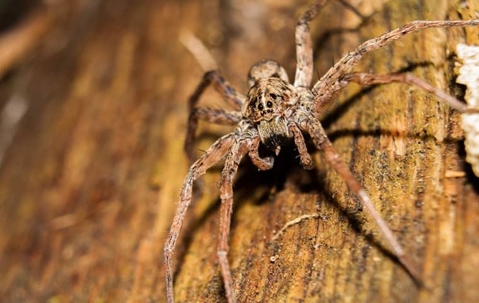Arizona doesn’t hold back on the sunshine, especially in summer. The heat can bring out all sorts of animals and bugs, and insects in your home might attract even more troublesome creatures. Wolf spiders can find their way onto your property if you aren’t careful. The Queen Creek pest control specialists at Pro Active Pest Control want to help you stay safe from these arachnids.
Wolf Spiders: Identification And Habits
Wolf spiders are fast-moving nocturnal arachnids. They don’t build webs. Instead, they stalk prey, hunting anything from insects to smaller vertebrates. The diet depends on the species and their size, which varies from 1/2 to 1 1/2 inches. You can identify them by their appearance, tendency to live in holes, and the lack of a web. While there are different types of wolf spiders, they all:
- Are brown, black, gray, cream, or lighter orange colors
- Have stripes or spots
- Have spiny legs, most often the front pair
- Don't spin webs
- Have eight eyes arranged in two rows of two and a bottom row of four
The top row of eyes will differ depending on the type. Since they don’t rely on webs, wolf spiders move more quickly than other types of spiders. They live in tunnels in the ground, helping them ambush their prey. This family of spider is one that takes care of its young. They carry egg sacs around with them, bringing them out for warmth during the day. After hatching from the eggs, baby spiders often crawl over and around the mother until they mature. While wolf spiders can bite humans, their poison won’t normally require medical attention.
Common Ways Wolf Spiders Enter Houses
Of all Arizona spiders, the wolf spider is one of the most likely to infiltrate a house. The habits of hunting at night and sneaking up on prey make these arachnids prone to finding their way into the smallest crevices. Outside, wolf spiders will seek out soil to burrow into, tall grass to hide in, or hideaways like debris or unused equipment. If they find their way in the house and can sufficiently feed themselves, they’ll make your home their own.
Summertime also encourages more insects to enter houses. These insect populations are food for wolf spiders, and these predators will find their food supply. If your house has gnats, flies, or other insects, it’s an invitation to these mobile arachnids.
Four Expert Tactics On Dealing With Wolf Spiders
Dealing with wolf spiders means limiting their food supply, depriving them of hideouts, and keeping your house inaccessible. To keep spiders out of house and yard areas:
- Put up flush screens on doors and windows.
- Seal cracks and crevices around the house exterior.
- Vacuum around the house.
- Keep a trim and clutter-free yard.
You can also get rid of places for them to hide and disrupt any indoor havens by vacuuming or sweeping. Clear out hiding spots in garages, basements, or attics once a month to make sure they aren’t getting comfortable. Screen doors and secured exteriors will not only keep wolf spiders out, but they will keep insects from getting inside and attracting these eight-legged predators in the first place.
Total Spider Prevention Programs For Queen Creek Residents
During the summer, these pests tend to get inside Queen Creek residences, and populations can grow if you aren’t prepared for them. Sometimes it takes a bit more to secure a home from a pest, and no one wants spiders everywhere in their living space. When we get frustrated, it can seem like a good idea to spray for spiders outside, but this can cause more harm than good.
At Pro Active Pest Control, our values for eco-friendly services and 100% customer satisfaction make us the most effective pest control company near you. If you want to secure your home from arachnids, we have methods to make sure they don’t bother you. With tailored methods and up-to-date, innovative technology, we will make your home comfortable again, even after the worst infestations. Call us today.

